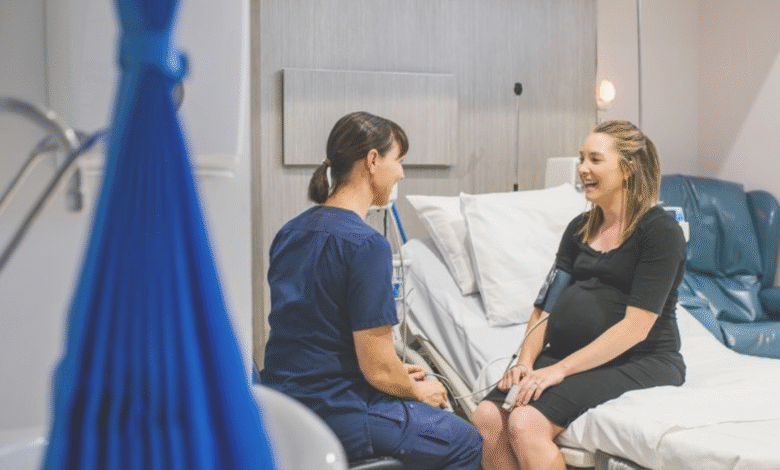How to Protect Patient Rights in NSW, Australia: Healthcare Legal Guide
Patient rights in NSW Your guide to medical consent, privacy laws, negligence claims & legal protections in Australian healthcare. Know your rights.

Patient rights in NSW, Australia are fundamental legal protections ensuring individuals receive fair, respectful, and high-quality medical care. These rights cover critical aspects such as informed consent, privacy, access to medical records, and protection against discrimination. Whether you’re undergoing treatment, filing a complaint, or seeking legal recourse, understanding these rights empowers you to advocate for yourself or a loved one in the healthcare system. With strong legal frameworks like the Health Records and Information Privacy Act (HRIPA) and the Australian Charter of Healthcare Rights, patients in NSW have clear avenues to address violations and hold providers accountable.
Despite these protections, many patients remain unaware of their full rights or how to enforce them. From medical negligence claims to confidentiality breaches, knowing where to turn for help can make a significant difference in outcomes. This guide explores the key patient rights in NSW, the laws that safeguard them, and practical steps to take if those rights are violated. Whether you’re dealing with a misdiagnosis, unauthorized treatment, or data privacy concerns, this resource will help you navigate the system confidently and ensure your rights are upheld.
How to Protect Patient Rights in NSW, Australia
Understanding Patient Rights in NSW
Patient rights in NSW are protected under both state and federal laws. The Australian Charter of Healthcare Rights outlines seven fundamental rights: access, safety, respect, communication, participation, privacy, and comment. These ensure patients receive non-discriminatory, transparent, and ethical healthcare services. Additionally, NSW-specific laws like the Health Records and Information Privacy Act 2002 (HRIPA) regulate how healthcare providers handle patient data. Under HRIPA, patients have the right to access their medical records and request corrections if information is inaccurate. Understanding these rights helps patients hold providers accountable for breaches of confidentiality or improper care.
A Fundamental Right
Informed consent is a cornerstone of patient rights in NSW. Healthcare providers must explain treatment risks, benefits, and alternatives before any procedure. Patients have the right to refuse treatment if they are not fully informed or uncomfortable with the proposed care. Failure to obtain valid consent can lead to legal claims for medical negligence. The NSW Civil Liability Act 2002 outlines the duty of care doctors owe patients. If a provider proceeds without consent, patients may file a complaint with the Health Care Complaints Commission (HCCC) or pursue compensation through medical malpractice lawsuits.
Privacy and Confidentiality Protections
Under HRIPA and the Privacy Act 1988 (Cth), healthcare providers must protect patient confidentiality. Unauthorized disclosure of medical records can result in legal penalties and disciplinary action. Patients can request their records and report privacy breaches to the NSW Privacy Commissioner. Hospitals and clinics must implement secure data handling practices. If a patient’s privacy is violated, they may seek compensation through the NSW Civil and Administrative Tribunal (NCAT). Keeping detailed records of breaches strengthens legal claims.
Filing Complaints for Rights Violations
If a Patient Rights in NSW believes their rights have been violated, they can take formal action through several channels. The Health Care Complaints Commission (HCCC) investigates serious complaints about healthcare providers’ conduct, while the Australian Health Practitioner Regulation Agency (AHPRA) handles disciplinary matters for registered practitioners. For public health services, the NSW Ombudsman provides oversight, and privacy breaches can be reported to the NSW Privacy Commissioner or the Office of the Australian Information Commissioner (OAIC). Patients should document all details of the incident, including dates, names of involved staff, treatment records, and any witness statements, as this evidence strengthens complaints.
Legal Recourse for Medical Negligence
When healthcare providers fail to meet expected standards of care, resulting in patient harm, they may be liable for medical negligence Patient Rights in NSW law. To establish a successful claim, patients must prove four key elements: (1) the practitioner owed them a duty of care, (2) this duty was breached through substandard treatment or errors, (3) the breach directly caused injury or harm, and (4) the harm resulted in measurable damages (such as medical costs, lost income, or pain and suffering). Claims are governed by the Civil Liability Act 2002 (NSW), which sets thresholds for proving negligence and caps on certain damages.
Mental Health Patient Rights
In New South Wales, mental health patients are protected under the Mental Health Act 2007, which safeguards their rights while receiving psychiatric care. The law ensures patients have the right to informed consent, meaning they must be properly consulted about their treatment options, potential side effects, and alternatives before any medical intervention. For those under involuntary treatment orders, there are strict safeguards – including regular reviews by the Mental Health Review Tribunal to assess whether continued detention is necessary. Patients maintain their right to dignity and respect, with care provided in the least restrictive environment possible that meets their health needs.
Disability and Discrimination Protections
The Disability Discrimination Act 1992 (Cth) ensures equal healthcare access. Patients with disabilities can request reasonable adjustments and report discrimination to the Australian Human Rights Commission.
Role of Patient Advocates
Patient advocates play a crucial role in safeguarding healthcare rights by serving as a bridge between patients and the often-complex medical system. These trained professionals help individuals understand their rights, navigate treatment options, and ensure their voices are heard when making healthcare decisions. Advocates assist with reviewing medical records, filing complaints with regulatory bodies like the Health Care Complaints Commission, and accessing appropriate support services. They’re particularly valuable for vulnerable patients – including those with mental health conditions, disabilities, or limited English proficiency – who may struggle to assert their needs independently.
Read More: How to File a Medical Malpractice Claim in California: USA Healthcare Law
Conclusion
Protecting patient rights in NSW, Australia requires both awareness and action. By understanding the legal frameworks like the Australian Charter of Healthcare Rights and Health Records and Information Privacy Act (HRIPA), patients can confidently navigate the healthcare system and demand fair treatment. Whether it’s ensuring proper informed consent, challenging medical negligence, or reporting privacy breaches, knowing your rights is the first step toward accountability.
When patient rights in NSW are violated, patients have multiple avenues for recourse, from formal complaints to legal action. Seeking support from healthcare advocates, legal professionals, or regulatory bodies can help resolve disputes and improve care standards. By staying informed and proactive, patients not only protect their own wellbeing but also contribute to a more transparent and ethical healthcare system for all Australians.
FAQs
What are the key Patient Rights in NSW law?
Patient rights in NSW include access to healthcare, informed consent, privacy of medical records, respectful treatment, and the ability to complain about care quality, protected by laws like HRIPA and the Australian Charter of Healthcare Rights.
How can I access or correct my medical records?
Under the Health Records and Information Privacy Act (HRIPA), you can request your records from healthcare providers and ask for corrections if information is inaccurate or incomplete.
What should I do if a doctor treats me without consent?
Unauthorized treatment may violate Patient Rights in NSW you can file a complaint with the Health Care Complaints Commission (HCCC) or seek legal advice about medical negligence claims.
Where do I report discrimination or denial of care?
If you face discrimination based on age, disability, or other factors, report it to the Australian Human Rights Commission or the NSW Anti-Discrimination Board.
Is there a time limit for medical negligence claims?
Yes, Patient Rights in NSW typically requires negligence claims to be filed within 3 years of the incident, but exceptions apply consult a lawyer promptly to protect your rights.











